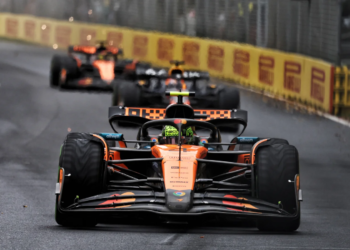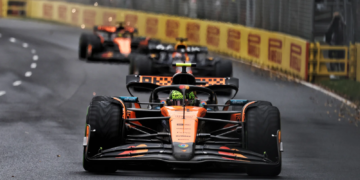Formula 1’s Singapore Grand Prix will not go ahead for the second year in a row as organisers insist immigration restrictions, imposed as part of COVID-19 protocols, mean it is no longer feasible.
The sport is however looking at alternative venues to take Singapore’s slot on the 2021 schedule, which was originally scheduled for October 3.
Singapore, which cancelled its 2020 event, has imposed strict immigration restrictions in the hope of limiting the spread of coronavirus, particularly from external sources as domestic transmission remains incredibly low, with an average of 20 new daily cases.
As such, restrictions are unlikely to be eased for hundreds of F1 personnel.
F1 is looking at several alternatives to replace the race, including a race in Turkey. Istanbul Park had been set to host a round on June 13, but it was dropped after the country was put on the UK’s ‘red list’.
As a consequence France’s race was pushed forward by one week while a second Austrian race has been added to the schedule.
However it’s hoped cases will have dropped by October, allowing the country to once again join the calendar on the back of a successful return in 2020.
If that isn’t possible, F1 could look to add a second race in the United States, with the Circuit of the Americas hosting back-to-back race weekends on October 17 and 24. This idea is likely to gain favour with F1 owners Liberty Media which is pushing the sport in the US, having announced a 10-year Miami Grand Prix deal from 2022.
Formula 1 has not ventured outside of Europe or the Middle East since the start of the pandemic.
Japan’s round, scheduled for October 10, remains at risk though officials in the country are currently focused on the organisation of the upcoming Olympic Games.
Covid-19 cases remain high in Mexico and Brazil but authorities in those countries are understood to be keen to welcome the championship and keep personnel separate from the population.
Brazil this week stepped in as last-minute host country for the upcoming Copa America tournament in spite of the country struggling to cope with a surge in cases.
Tight entry restrictions imposed by Australia means November’s postponed round remains at risk.
F1 bosses are keen to retain a record 23-round calendar despite a number of races being under threat.
Last season featured 17 rounds, rather than the initially planned 22 events, which had an impact on revenue and prize money.









Discussion about this post